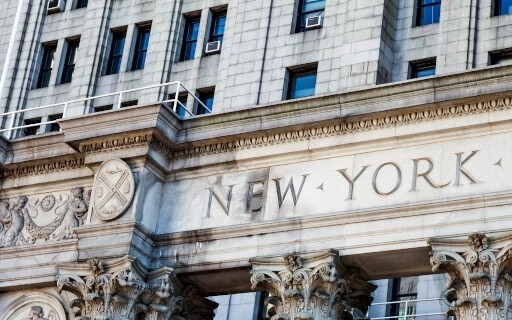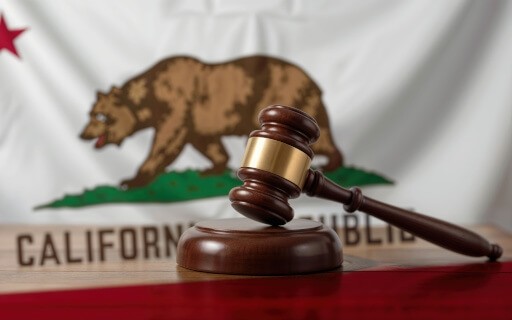
As the name implies, landlord inspections are planned onsite checkups of an occupied unit. Typically conducted by landlords or property managers, the primary purpose of these inspections is to verify the property's condition at particular intervals in the rental cycle, such as move-in, move-out, or mid-lease. Regular inspections ensure no ongoing damage to the property and encourage tenants to treat their unit with care.
Property inspections are part of every landlord’s routine responsibility. Not only can frequent checkups hold tenants accountable for maintaining their rental, but they also help property owners maximize their profit. Knowing when and how to effectively monitor a rental property will help landlords make the most of every inspection.
In this article, we’ll cover the following:
- What landlords should inspect
- When to conduct an inspection
- Reasons to inspect your rental
- Tips to ensure a fair inspection
- Frequently asked questions
What Landlords Should Inspect
Knowing what to look for when you enter your property will help keep your visit professional and concise. A general inspection should ensure everything is in working order and complies with safety regulations. A few items to be reviewed as part of a routine inspection should include:
Smoke detectors
These are a critical safety feature in any rental property. Landlords should test each detector during inspections to ensure it’s functioning properly. Replace batteries if needed and confirm the device isn’t expired, as most smoke detectors need to be replaced every 8-10 years. Functional smoke detectors not only protect tenants but also help landlords comply with local safety regulations and reduce liability risks.
Signs of water damage
Water damage can lead to costly repairs if unnoticed. Look for stains on ceilings, walls, and floors, as well as any peeling paint or warped surfaces. Check under sinks and around plumbing fixtures for leaks. Early detection of water issues, such as a persistent damp smell or visible mold, helps prevent long-term structural problems and maintains the property’s value.
Air filters
Air filters in HVAC systems play a vital role in maintaining air quality and keeping heating and cooling systems efficient. Dirty filters can lead to higher energy bills and strain the system, potentially shortening its lifespan. During an inspection, ensure filters are clean or replaced as needed. This upkeep can also prevent tenant complaints about poor air circulation or allergens.
Pests or infestations
Pests can quickly become a serious issue if not addressed promptly. Look for droppings, nests, or damaged materials that may indicate the presence of rodents, insects, or other pests. Inspect common problem areas like kitchens, basements, and outdoor spaces. Establishing a routine pest control plan can save you significant expense and tenant frustration down the road.
Floors, walls, and windows
Inspecting these areas is essential to identify wear and tear or damage that could escalate. Check floors for scratches, stains, or loose tiles. Walls should show no cracks, holes, or peeling paint. Ensure windows open and close smoothly and are free of broken glass or damaged seals. Well-maintained interiors improve tenant satisfaction and help retain the property's market value.
Indications of lease violations (i.e., smoking, pets)
Landlords should be alert for signs of behavior that may violate the lease agreement, such as an indoor odor of smoke, unauthorized pets, or excessive clutter that creates safety hazards. These issues can lead to additional maintenance costs or conflicts with future renters. Document violations during inspections and address them with tenants promptly to uphold the terms of the lease agreement.
Keep in mind that a tenant’s personal property is off-limits. While you can peek inside the fridge or scan the bedroom for wear and tear, going through a renter’s closet or dresser drawers, for example, is a legal violation of privacy.
When to Conduct an Inspection
Landlords typically conduct rental inspections at key points in the rental cycle. Three essential inspection times include move-in, mid-lease, and move-out. Using a rental inspection checklist can help you to maintain detailed records.
Move-in inspections
Also known as walk-throughs, move-in inspections prepare a rental unit for incoming tenants and ensure a quality condition of the property. Tenants should sign off on the inspection report after reviewing it to help prevent conflicts later over what constitutes pre-existing damage versus wear and tear caused during the tenancy.
Mid-lease inspections
Mid-lease inspections help to guarantee that tenants are upholding their end of the leasing agreement and are adequately caring for the unit. These inspections might be scheduled quarterly, semi-annually, or annually, depending on local laws and the lease agreement.
Move-out inspections
Move-out inspections evaluate the state of a rental before the previous tenant receives a security deposit refund. Landlords should compare the current condition with the move-in inspection report, noting any damages beyond normal wear and tear.
Other periodic inspections are performed for fire safety, pest control, or general maintenance. The timing and frequency of rental inspections are up to individual landlords and property managers as long as they adhere to local laws.
Reasons to Inspect Your Rental
One of your top priorities as a landlord is to maintain the pristine state of your investment property. Regularly checking in with your tenant, staying on top of repairs, and looking out for any lease violations will help you catch damage early and boost your profit. Consider the following reasons to inspect your rental:
Maintenance and repairs
Keeping up with the state of your rental is a valuable part of preserving its condition. Tend to any repair needs immediately. When your tenant submits a maintenance request, find a mutually agreed upon time to inspect the issue. If you are the one who discovers the repair need, alert your tenant, and give them notice that you will be coming by to inspect. Apartments.com provides landlords with helpful rental tools that allow tenants to submit maintenance requests online. Managing maintenance requests and keeping track of a unit’s repair history have never been easier!
Alterations or improvements
Although aesthetic alterations and improvements are not vital to the habitability of your rental, they are still valid reasons to visit the property. If you are considering installing new light fixtures or flooring, let the tenants know you want to assess the unit. Suggest a reasonable time that allows the renters to prepare for your arrival.
Showings
If you are preparing to show your property to prospective tenants, an inspection may be necessary to ensure it is suitable for visitors. Notify your tenant 24-48 hours before you intend to stop by to give them the chance to clean up or leave the unit.
Lease violations
A tenant is expected to uphold their end of the leasing agreement. If landlords suspect renters are housing unwelcomed guests or unpermitted pets, they are within their rights to schedule an inspection. Although it can be tempting to address an infraction immediately, property owners must give reasonable notice before arriving.
Extenuating circumstances
Other circumstances in which you might need to conduct an inspection are health violations, property abandonment, court orders, or any other conditions that jeopardize your tenant or the property. In the case of emergencies, such as burst pipes or fires, landlords have permission to enter without notice.
Tips to Ensure a Fair and Professional Rental Inspection
Since rental inspections are part of a landlord’s routine duties, you must know how to conduct them efficiently. While you have the right to inspect your property, knowing what to look for and how to respect your tenants’ privacy will make the experience easier for all parties involved.
Give prior notice
One of the first steps in preparing for a rental inspection is to notify your tenant ahead of time. State laws outline expected proper notice - most states mandate a written or verbal notice 24-48 hours before inspection. In addition to these timely alerts, many landlords choose to outline inspection information in the leasing agreement. In doing so, tenants agree to a landlord’s right to inspection upon signing the lease. No matter how you decide to structure your inspection policy, make sure you and your tenant reach a mutual agreement on the timing and purpose of these inspections.
Document all inspections
Staying organized is a critical part of maintaining your investment property. One way to do so is by keeping records up to date. During an inspection, document your reasons for the visit and your findings. Keep records of any repair costs.
Respect tenants’ right to quiet enjoyment
Tenants are legally entitled to quiet enjoyment of their rental unit. Simply put, this is the right to undisturbed use of the property in exchange for rent. While the right to quiet enjoyment does not negate a landlord’s freedom to enter their property, it prevents the following behaviors:
Avoid frequent entry without proper notice
As stated above, landlords are generally required to give tenants advance notice—commonly 24 to 48 hours—before accessing the rental unit, except in emergencies. Frequent, unannounced visits disrupt a tenant's privacy and daily routine, creating unnecessary tension. Repeatedly entering without notice not only breaches the tenant's right to quiet enjoyment but may also violate landlord-tenant laws in many areas. Respecting proper notice protocols helps landlords maintain professional relationships while ensuring compliance with legal requirements.
Respect personal property
A tenant’s personal property within the rental unit is off-limits to landlords, regardless of the circumstances. Searching or inspecting their belongings constitutes an invasion of privacy and violates the trust central to successful rental agreements. Tenants must feel secure within their home to fully enjoy their rental experience. Landlords should focus their inspections on the condition of the unit itself, rather than the tenant’s possessions, to avoid legal repercussions and foster a positive tenancy.
Do not harass tenants, either in person or over the phone
Any form of harassment, such as constant, unwarranted visits, inappropriate demands, or excessive phone calls, is a direct violation of a tenant’s right to quiet enjoyment. Harassment can make tenants feel unsafe or pressured, pushing them to consider legal action or terminate the lease. Communication should always remain professional and respectful, limited to necessary discussions about renting terms, maintenance, or issues relevant to the property.
Do not overstep your tenant’s legal rights when conducting a rental inspection! Even if you suspect poor property maintenance or illegal activity, give your renter the privacy they were guaranteed upon signing their leasing agreement. By conducting inspections legally and respectfully, landlords can maintain their properties while fostering a good landlord-tenant relationship. Always stay informed about your local regulations to avoid potential disputes.
Frequently Asked Questions
How long should an inspection take?
Inspections should be concise and professional. The duration will differ based on the type of inspection but should generally be no longer than thirty minutes to an hour. Remember to give your tenant a timeframe estimate, so they will know how much time to devote to the event.
Can photos be taken?
Yes, landlords can take photos of damages, maintenance issues, or general conditions as documentation. However, avoid photographing personal belongings to respect the tenant’s privacy.
Can a landlord perform a surprise inspection?
It is only acceptable for a landlord to enter a rental without advance notice during times of an extreme emergency, such as a fire, flooding, or another possible tenant endangerment.
Can a tenant refuse a landlord inspection?
If the tenant declines entry without a valid reason, explain that landlords have a legal right to conduct inspections with proper notice. If they continue to refuse, check local laws and consider seeking legal advice or filing for a court order if necessary.
Must a tenant be present during an inspection?
The requirement for a tenant to be present during a landlord inspection depends on the laws of the jurisdiction and the terms of the lease agreement.










